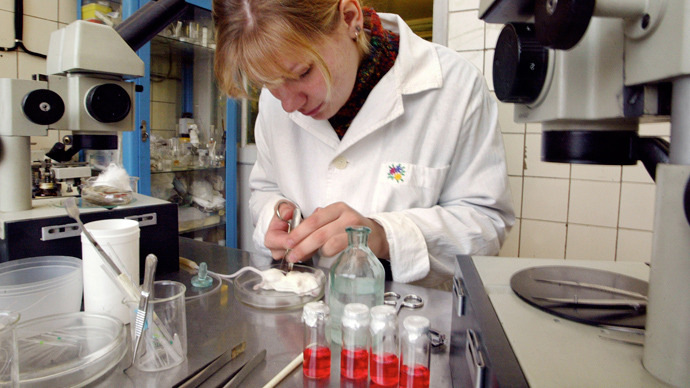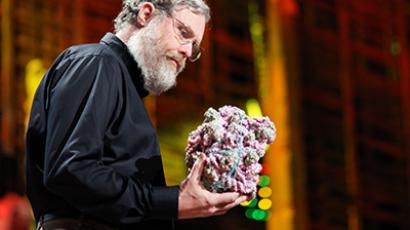Mystery of aging: Swiss scientists one step closer to breaking longevity secrets

Swiss researchers have discovered the impact of a longevity gene in mice, crucial in unlocking the riddle of aging, and subsequently extended the life-span of worms by 60% through basic antibiotic treatment.
The goal of the research by the Ecole Polytechnique Federale de Lausanne (EPFL) and which was published in the scientific journal Nature was to find out why some members of the same species live much longer than others.
“Our lab has for some time been using a complex genetic reference population of mice, which mimic the human population to study ageing,” said John Auwerx, the head of the cutting edge Swiss team, told AFP.
The scientists examined the mice’s mitochondria, the power plant of a cell, and worked out how a group of three genes affected the animal’s life-span through how fast they functioned.
Those mice whose genes were 50% slower lived 250 days, or 30% of mouse lifespan, longer.
“Based on this observation, we switched model, and started validating this experimentally in a worm, knocking down the same proteins, we could see an up to 60% extension of the worm’s life-span,” said Auwerx.
Auwerx then explained that since mitochondria are bacteria living in cells, this allowed then to experiment with antibiotics, which target bacteria.
“We could see that treating the worms with the antibiotics also mimicked the genetic effects, and they also lived 60% longer,” he explained.
Mitochondria transform nutrients into proteins and several studies have suggested that they may be the driving force behind aging.
The scientists underlined that further studies would be required to find out whether antibiotics could be used to slow down ageing in mammals.
A similar study published in the journal science at the end of
last year into solving the mystery of aging found that Longevity
Gene Makes Hydra Immortal and Humans Grow Older. The reason is that
these tiny fresh water animals exclusively reproduce by budding
rather than by mating.














